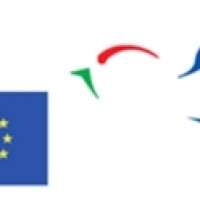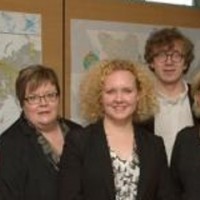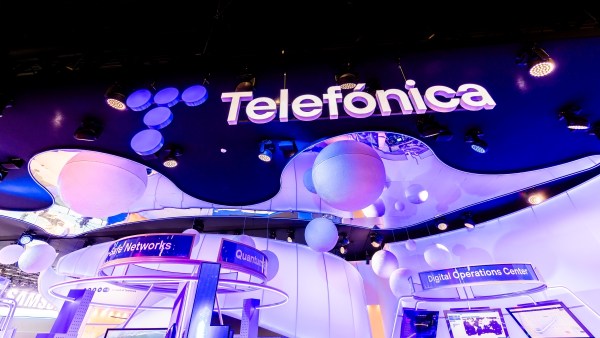 Javier Serina/ @javseri
Javier Serina/ @javseri
Public Policy Manager of Telefónica
 One of our central ideas regarding Internet Governance is the fact that, due to the huge economic and social impact of the Internet, its governance is becoming more and more an issue of international politics. A good example of this is the emergence of Internet Governance very high in the EU agenda. In fact, as part of its priorities’ development for the under way Italian Semester, the Italian Presidency of the Council of the EU is trying to formulate a single European approach to the global Internet Governance debate.
One of our central ideas regarding Internet Governance is the fact that, due to the huge economic and social impact of the Internet, its governance is becoming more and more an issue of international politics. A good example of this is the emergence of Internet Governance very high in the EU agenda. In fact, as part of its priorities’ development for the under way Italian Semester, the Italian Presidency of the Council of the EU is trying to formulate a single European approach to the global Internet Governance debate.
Last week, the Italian Undersecretary of State Giacomelli called an informal Telecommunications Ministerial Council meeting in Milan to discuss this issue. The importance given by the Italian Presidency is reflected by the fact that the agenda of this meeting has just one point: Internet Governance.
The European Commission presented in February 2014 its Communication on “Internet Policy and Governance, Europe’s role in shaping the future of Internet Governance” where it called for more transparent, accountable and inclusive governance of the Internet.
In just eight months since its publications, the Internet Governance arena has seen several significant developments:
- The NETmundial meeting in Sao Paulo in April, in which Member States confirmed support for a “single, open, free, secure, reliable and un-fragmented Internet”
- In March, the US National Telecommunications and Information Administration (NTIA) announced its intent to transition stewardship of the Internet Assigned Numbers Authority (IANA) functions to the global multistakeholder community. The US government asked ICANN to develop a proposal for such a transition, something that is being prepared by its IANA stewardship transition coordination group (ICG). In parallel, ICANN has launched a process to improve its own accountability and governance, including its further globalization
- In May, the WSIS+10 Review agreed on a revision of the Tunis agenda action lines. Concrete modalities of this revision are being discussed by this UN General Assembly Session with a view to completing the review by December 2015
- In August, the NETmundial Initiative launched by ICANN and the WEF began its activities with the objective of reinforcing the Internet Governance Forum (IGF) and of opening the Internet Governance debate to all affected industries
- In September we saw in Istanbul the largest ever IGF meeting, with very vivid debates and the launching of the IGF Supporting Association (IGFSA) by the Internet Society (ISOC), also with the objective of ensuring the renewal of the IGF, its stable financing and its intersessional work in coordination with national and regional IGFs
This Informal European Council tried to give political impulse to the EU position on Internet Governance by answering three questions:
- How can the European Union speak with one voice in order to support a successful transition of the IANA to the international community? In which way can the function currently performed by the US government (oversight role) be made more inclusive of Europe, and ultimately of the global community? And in which form EU and US can cooperate for achieving such a goal? In ICANN the main challenge for more accountability, transparency and globalization will be to ensure the right checks and balances. How can it be ensured that ICANN respects different judicial systems, not least the EU aquis, and transforms itself into a truly accountable organization?
- We can ensure internally the protection of an Internet open, transparent and multi-stakeholders governance of the Internet by consolidating the digital single market in Europe. Which principles are important to be agreed at EU level and which elements can be left at national level in view of completing the DSM: rule of law, jurisdiction, privacy, net neutrality?
- Europe should act as a global player in the IG debate. How can we contribute to the UN/WSIS+10 review process and what other means are available to build capacity in developing countries?
The outcome of this meeting has been a “Presidency Statement” along the lines of the EU position already set up by the Council, consistent with the respect of fundamental rights and democratic values, the preservation of a single, open and free Internet and the commitment to the multistakeholder model of Internet governance. More in concrete, the main messages included in this statement are the following:
- Europe is determined to act as a coherent partner in the Internet Governance debate, speaking with one single voice.
- Keywords for the transition of the IANA function and the strengthening of ICANN processes are: inclusiveness, transparency and accountability.
- EU Member states support the evolution of the Internet Governance within an open and transparent multistakeholder model not only limited to the IANA functions.
- EU Member states consider orientation from Net Mundial as a good basis for developing a multistakeholder community.
- There will be a Council position in time for the TTE Council end of November.
We expect this position will contain a reiteration of the need to globalize the IANA functions, a call to preserve the security and stability of the domain-name system and to reinforce the accountability, transparency and globalization of ICANN. Finally, Europe will stress its commitment with capacity building initiatives in developing countries to enable them to participate in the global Internet Governance debate.














